
When discussing a life insurance policy that accumulates cash value, in particular, participating dividend paying whole life insurance, the short answers are both Yes, and No. Confused yet? Let me clarify. A policy can either be owned personally or corporately. Where a policy is personally owned and the death benefit proceeds are paid to a named beneficiary (or beneficiaries), the proceeds are not income taxable in Canada as long as the premiums that paid for it were not deducted. Where a policy is corporately owned, and the corporation is named as the primary beneficiary, the death of the life insured gives rise to the Capital Dividend Account (CDA), which is a notional account. The total death benefit minus (-) the adjusted cost basis of the policy is credited to the CDA account. Proceeds can be paid to the surviving shareholders via tax free capital dividends.

Now there are instances where a taxable event can be triggered. Typically this would be in relation to cash value policies that have been accumulating tax-exempt savings (or investment portion) inside of them. For example, if a policy owner were to terminate or surrender a cash value life insurance policy, and the case surrender value exceeded the adjusted cost basis (ACB), the amount returned to the policy owner above the ACB is taxable. Whenever a policy contract is forfeited, all bets are off, meaning the Life Insurance Company is no longer contractually obligated to the policy owner, and the policy owner is no longer required to pay a premium.
Policy Loans: A participating dividend paying whole life policy accumulates cash value on a daily basis. The policy owner has the contractual authority to request a policy loan from the Life Insurance Company. If the policy loan requested exceeds the ACB of the policy, the amount borrowed above the ACB is taxable. Caveat – when the policy owner repays some or all of the policy loan balance, a corresponding tax deduction is received for the amount that previously triggered a taxable event. For example, John Doe’s policy has $500,000 of total cash value, a death benefit of $1,000,000 and an adjusted cost basis (ACB) of $400,000. John requests a policy loan for $450,000. The amount borrowed above the ACB ($50,000) triggers a taxable event. John’s entire $500,000 of cash value continues to grow daily, with no taxation on the accrual. A lien is placed on John’s death benefit for the loan balance. 2 years later, John decides to make a policy loan repayment of $50,000. A corresponding tax deduction is received for $50,000
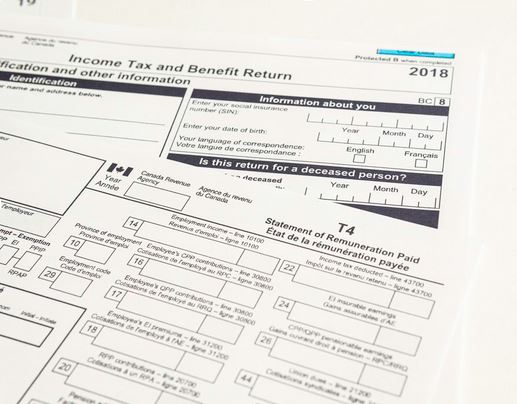
Can you claim or should you claim the receipt of life insurance death benefit proceeds on your income tax return? If you have received a death benefit payout as a named beneficiary of a life policy then you are not required to claim it because the proceeds are not income taxable. Life insurance is there to replace the lost income of the person who is insured to solve a financial problem that this lost income potential creates for the beneficiaries that are left behind. Premiums are paid with after-tax income and as such life proceeds are not taxable other than for the very select and rare instances discussed in this article.
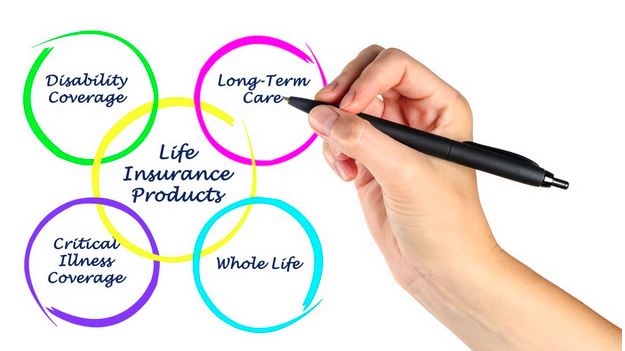
Any taxpayer would want to maximize the tax-saving they can achieve per year. It is essential to ask questions about what is and isn’t deductible. The benefits of owning life insurance in a corporation are tremendous. These benefits, however, are created because the policies are funded with after-tax corporate dollars. There is only one scenario where a portion of the required premiums can be deductible for tax purposes, and that is when a lender requires life insurance coverage on the borrower as a condition of approving a loan or other operating line of credit.

In general, the premium paid on Life and health policies is not considered a business expense. Care should be taken and a designated accounting professional should be consulted to provide guidance in this area. Unknowingly some business owners deduct life and health premiums as a business expense and open up a “can of tax worms”. As these benefits for policies are generally received tax-free by also writing off the premiums (deducting them from earned income) their business is receiving a double benefit in the eyes of the taxman. This could mean that the tax-free benefit is now subject to taxation which can be extremely detrimental to the business and whoever is the beneficiary of the policy proceeds.
Get Access To Our On-Demand Training To See How Our Expert Financial Advisors And Coaches As Well As An Extended Network Of Trained Tax Professionals Can Help You Understand Life Insurance Taxation In Canada.


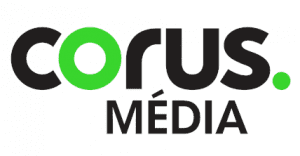

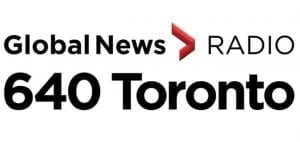

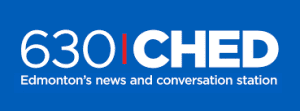

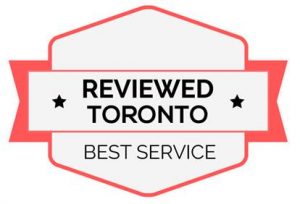
© 2024 Ascendant Financial Inc. All rights reserved.
The supporting material, audio and video recordings and all information related to Introduction to Becoming Your Own Banker, The Infinite Banking Concept (IBC) posted on www.ascendantfinancial.ca and all other Ascendant Financial Inc. websites are designed to educate and provide general information regarding The Infinite Banking Concept (IBC) and all other subject matter covered. It is marketed and distributed with the understanding that the authors and the publishers are not engaged in rendering legal, financial, or other professional advice. It is also understood that laws and practices may vary from province to province and are subject to change. All illustrations provided in these materials are for educational purposes only and individual results will vary. Each illustration provided is unique to that individual and your personal results may vary. Because each factual situation is different, specific advice should be tailored to each individual’s particular circumstances. For this reason, the reader is advised to consult with qualified licensed professionals of their choosing, regarding that individual’s specific situation.
The authors have taken reasonable precautions in the preparation of all materials and believe the facts presented are accurate as of the date it was written. However, neither the author nor the publishers assume any responsibility for any errors or omissions. The authors and publisher specifically disclaim any liability resulting from the use or application of the information contained in all materials, and the information is neither intended nor should be relied upon as legal, financial or any other advice related to individual situations.
Family Banking System (FBS)™ is a trademark of Ascendant Financial Inc. © Ascendant Financial Inc., 2024. All rights reserved. The phrase “Live the Lifestyle, Love the Process, Infinite Banking” is a registered copyright (Registration No. 1209863) with the Canadian Intellectual Property Office. Unauthorized use, reproduction, distribution, or copying of this phrase, in whole or in part, without express written permission from Ascendant Financial Inc. is strictly prohibited. This copyright is protected under Canadian intellectual property laws and regulations. Any unauthorized use is subject to legal action and enforcement under Canadian law. For inquiries or requests for permission to use this copyright, please contact Ascendant Financial Inc.
The Infinite Banking Concept® is a registered trademark of Infinite Banking Concepts, LLC. Ascendant Financial is independent of and is not affiliated with, sponsored by, or endorsed by Infinite Banking Concepts, LLC.”
This content is intended for Canadian residents of BC, AB, SK, MB, ON, NB, NS, NU, YT, PEI & NFLD only.